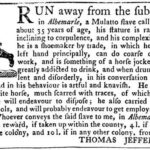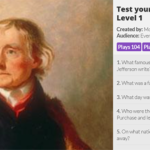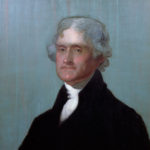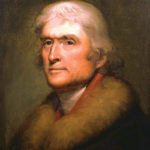Thomas Jefferson, the man who wrote the famous line “all men are created equal,” was a life-long slave-owner. Over the course of his life, he would own 600 human beings, and at any given time there would be roughly 100 slaves living and working on and around Jefferson’s plantation and farms. This handout describes Thomas Jefferson’s views on slavery.
Hamilton: An American Musical Resources
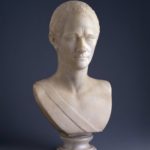
Alexander Hamilton, Founding Father and Broadway star, clashed with Thomas Jefferson politically and morally. But both figures were essential to the founding of the United States of America. Check out this page for resources on Jefferson, Hamilton, and other main players from the Broadway musical “Hamilton: An American Musical.”
Jefferson and Slavery – for ELD students
Kahoot Quizzes on Thomas Jefferson and Monticello
Brief Biography of Thomas Jefferson
Election of 1800
In this activity, students will analyze the Electoral College tally for the presidential election of 1800 between John Adams and Thomas Jefferson.
Timeline of Thomas Jefferson’s Life
Virtual Field Trips at Monticello

Monticello has partnered with Microsoft Skype in the classroom to bring FREE virtual field trips to your students, grades K-12. The virtual field trip lasts about 45 minutes, during which time a Monticello educator will talk to your class about Monticello using images, props, and an online virtual tour. Your students can ask the educator questions, and you can prepare your students with pre- and post-visit resources.
Famous Founders
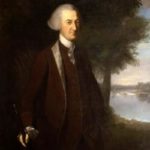
This short video expands the definition of “famous Founder.” Men like George Washington, Thomas Jefferson, Benjamin Franklin, and James Madison are readily considered to be famous. However, Professor Daniel Dreisbach suggests that individuals such as Roger Sherman, John Dickinson, John Witherspoon, and Elbridge Gerry are equally deserving of fame and honor for their contributions during our nation’s founding era.
Letter to James Madison
This letter from Thomas Jefferson to James Madison in September, 1789 focuses on human rights and the principles of every government. The question: Whether one generation of men has a right to bind another, seems never to have been started either on this or our side of the water. Yet it is a question of such consequences as not only to merit decision, but place also, among the fundamental principles of every government. The course of reflection in which we are immersed here on the elementary principles of society has presented this question to my mind and that no such obligation can be transmitted I think very capable of proof.
